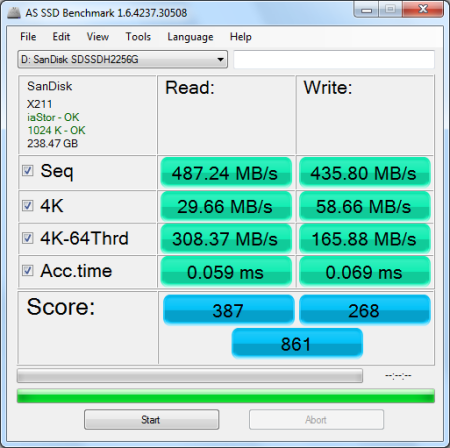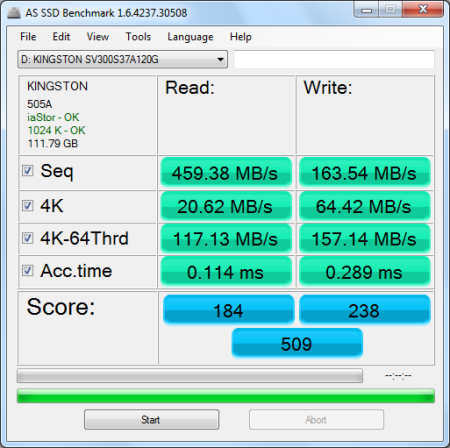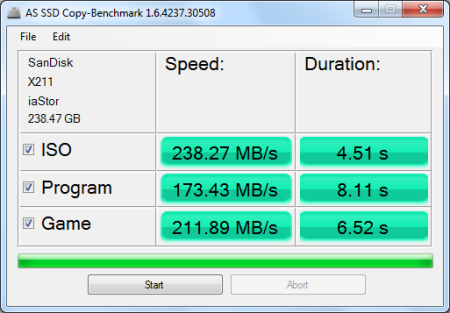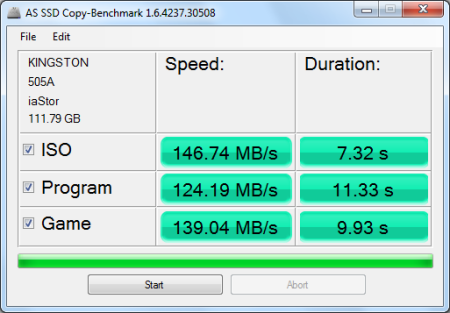AS SSD:
AS SSD is a relatively new benchmark designed specifically for solid state drives. The application contains five synthetic tests used to determine the sequential and random read and write performance of a drive.
AS SSD also includes a copy benchmark. This test copies an ISO (two large files), program (many small files) and game (small and large files), returning the speed and duration of each.
HD Tune Pro 4.61:
Next, I ran a series of tests using HD Tune Pro. This hard disk utility measures a drive's performance by testing its sequential read and write speeds as well as its access time, burst rate and CPU usage. For this review, I'm also going to use it to benchmark the Ultra Plus' random read and write speeds, random access times and the number of operations per second.
 SanDisk Ultra Plus SSD 256GB - HD Tune Read Benchmark |
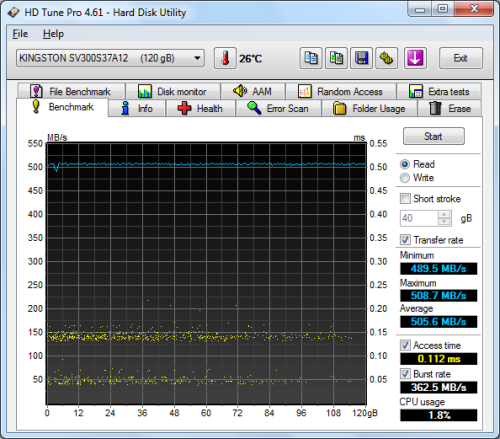 Kingston SSDNow V300 120GB - HD Tune Read Benchmark |
 SanDisk Ultra Plus SSD 256GB - HD Tune Write Benchmark |
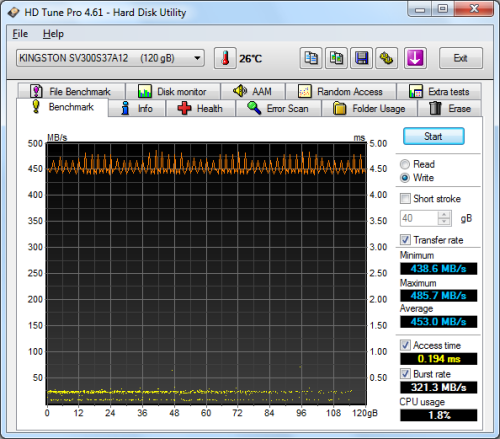 Kingston SSDNow V300 120GB - HD Tune Write Benchmark |
The Ultra Plus performed very well when benchmarked with HD Tune. The drive had average read and write speeds of 510.4 MB/s and 398.1 MB/s, respectively, as well as a burst rate of 124.7 MB/s when reading.
 SanDisk Ultra Plus SSD 256GB - HD Tune Random Access Read |
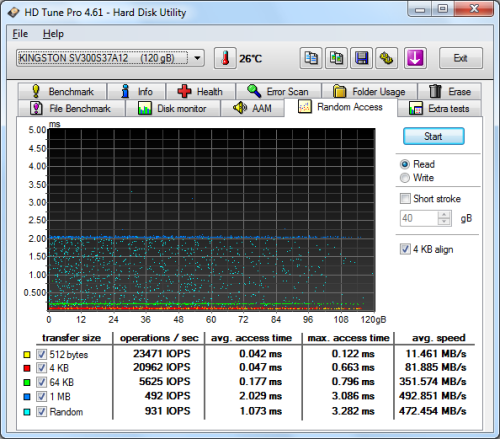 Kingston SSDNow V300 120GB - HD Tune Random Access Rea |
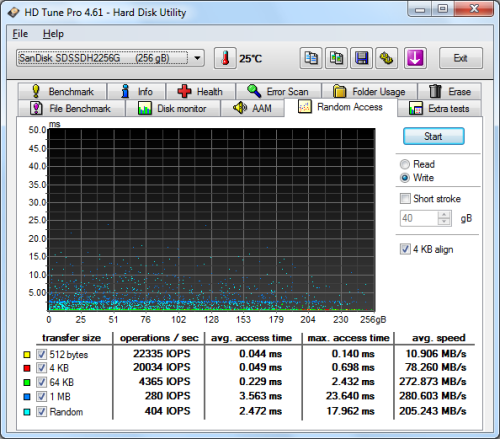 SanDisk Ultra Plus SSD 256GB - HD Tune Random Access Write |
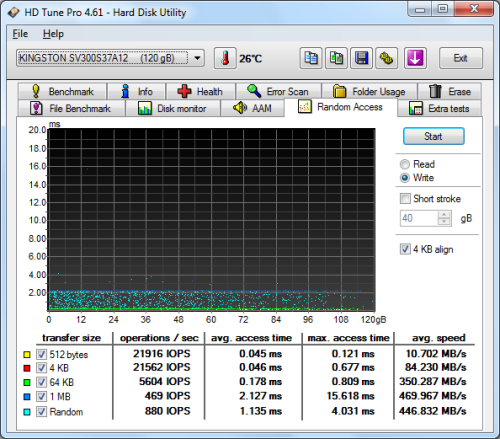 Kingston SSDNow V300 120GB - HD Tune Random Access Write |
The Ultra Plus didn't disappoint when doing random reads and writes. When writing 4KB blocks, the drive reached 20,034 IOPS and had an average speed of 78.260 MB/s. The Ultra Plus was even faster when reading, reaching 22,292 IOPS with an average speed of 87.080 MB/s.


